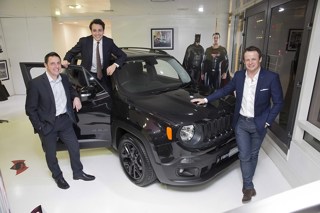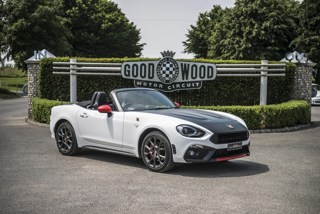The 2004 Used Car Market Report from BCA and Sewells Information & Research suggests dealers are increasingly meeting the needs of these consumers – 72% claimed to be ‘very satisfied’ when questioned, while a further 23% said they were ‘quite satisfied’ with their used car purchase. Just 2% were not satisfied with the car or service offered at their local retailer.
Sourcing the right cars has been key to the high satisfaction levels – 53% of people go to dealers for this reason.
The response underlines the increasing prominence given to used cars by franchised dealers – it is, after all, a major source of profits compared with the new car market, where margins are invariably slim. Dealers have also been forced to raise their standards as more independent used car businesses open supersites around the UK. The likes of CarLand, Carcraft and The Car People has meant more competition for customers and for cars, which has impacted on residual values.
It’ll come as no surprise that motorists spent a record amount on cars last year – £65.5bn, up £5bn on 2002. Record new cars sales (2.56m) helped, but the real surge came from the used market where stable residuals pushed volumes to 7.24m and a record value of £32bn.
From franchised and independent dealers to private buyers, and from nearly new cars to older vehicles, sales volumes rose in every sector of the marketplace.
Retailers enjoyed an 8.3% increase in used car sales volume to 3.87m last year, which represented 53.6% of the market. They tightened their grip on all car transactions up to eight years old, accounting for almost 72% of this sector. That’s worth 74.2% of the sector’s value, around £23.7bn, more than twice the value achieved a decade ago.
Much of this comes from the younger end of the market – in the 0-2 year-old sector, dealers take 91.4% of sales. Their average used car values have also risen, up by £262 to £6,132, a clear indication that real-world residuals are stronger than many experts have predicted.
The stranglehold exerted by dealers over used car sales is likely to increase as the average age of the UK car parc continues to fall. Cars less than eight years old represent 62.5% of the UK parc – at 18m units, up 3.5m in five years.
Half of consumers focus on the make and model, while 42% say that low mileage is a key purchase factor. Age and body type are also important, but less so are specification at 17% (a salient point for dealers trawling auction halls for the cars equipped with high levels of kit), insurance (15%) and safety (13%) – the demand for safer vehicles in the new car market has yet to filter down to used.
Diesel demand is growing: 20% of used car buyers opt for oil-burners, up from 15% two years ago – 86% say they chose diesel because of its better fuel consumption, compared with 65% a year earlier.
Fewer purchases are made on finance, down 7% to 30% of all sales last year. Whether this is a reflection on sales abilities in the showroom or an underlying trend towards other forms of funding is unclear. Internet sourcing is growing, with more than half of all motorists now having online access. Two-thirds of potential buyers with internet access say they will use it to find their next vehicle (29% favouring dealer sites).

















Login to comment
Comments
No comments have been made yet.